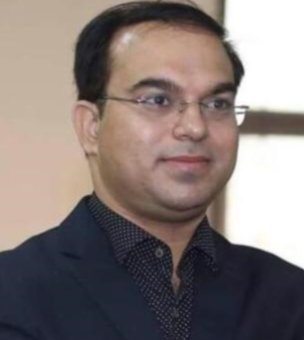Looking at political participation behavior of young adults in contemporary society like Pakistan, as Pakistan has one of the largest young populations in the world which as 64% percent of the population consists of youth.
Its magnitude of importance end significance as the political narrative is being designed with the consideration of youth factor of Pakistan, but the role of youth in the electoral process of Pakistan has remained persistently low in the previous decades. Let ask some questions and try to explore some inside the issue such as, what defines youth political participation? How does youth political participation differ from adult political participation? How do young adults develop political attitudes? How does youth political participation differ across multi sect and multi-layer complex society like Pakistan? What methods are being used to analyze youth political participation?
It is important to understand that limited education, limited experience of deliberative decision making at home, and lack of exposure to positive examples of civic engagement, including role models in one’s community, hinder youth ability in participating in political discourse in a meaningful manner. Supporting to young people’s participation in inclusive political processes and democratic practices, through three measures, covering the wider enabling environment, individual capacity building and a specific focus on young women.
Meaningful youth participation and leadership including all gender require that young people and young people-led organizations have opportunities, capacities, and benefit from an enabling environment and relevant evidence-based programmes and policies at all levels. Realizing young people’s right to participate and be included in democratic processes and practices is also vital to ensure the achievement of internationally agreed development goals and to refresh the development agenda.
First and foremost, the promotion of an enabling environment such as legal frameworks, policies and plans for young people’s participation in a broad range of processes and areas like electoral and parliamentary processes, public administration and local governance, including in peacebuilding environments at local, sub-national and national levels; is must.
Secondly, the promotion of young people’s skills and capacities to participate actively in democratic practices, including in local, national, and global processes in term of leadership trainings and programs.
Last but not the least, the promotion of young women’s participation and presence in political office and decision-making at all levels as participation of young women -through both elected and non-elected positions is essential for maintain gender equality and balance of power.
In order to respond to the needs of young people, and to guarantee that their basic human rights are recognized and enforced, young people’s active and meaningful participation in their societies and in democratic practices and processes is of crucial importance.
Youth overwhelmingly support democracy, despite weaknesses. Pakistan has persistently faced multiple challenges in continuing democracy and democratic practices in the country, with no sitting Prime Minister ever completing a full five-term tenure. Therefore, to encourage the youth to exercise their voting rights and participate in the elections more frequently in order to bring a democratic change in Pakistan.
Through active participation, young people are empowered to play a vital role in their own development as well as in that of their communities, helping them to learn vital life-skills, develop knowledge on human rights and citizenship and to promote positive civic action. youth have participated in many activities; their interests and knowledge of politics are increasing. The new generation is more interested in participating in political matters and more likely to take a part in political discussions. social media in politics has bought major transformations in the political culture and narrative building. In turn, it has massive impact on shaping and reshaping the public opinion. In addition, it also influences the perception of policy makers and leaders.
Effective and meaningful youth political participation have different attributes: it can be consultative; it can entail youth-led participation, where young people have a direct impact on decision-making within their own youth communities; finally, it can involve youth collaborative participation, where young people effectively take part in regular political decision-making processes.
We need to foster youth political participation which is acutely their fundamental rights as based on several international conventions and declarations, including the Universal Declaration of Human Rights, the World Programme of Action for Youth and the Convention of the Rights of the Child. They provide a strong frame of reference for a rights-based approach to related programmes of support. There is a long way ahead for meaningful political participation of young cadre of society, are we ready for that?
About:
Qazi Arshad Siddique
He is a young political leader, social activist, trainer for youth on political education program, He can be access through qazi.arshad.siddiqui@gmail.com

